1,374 Days: My Life With Long Covid
Telling the story of a life-altering disease through data
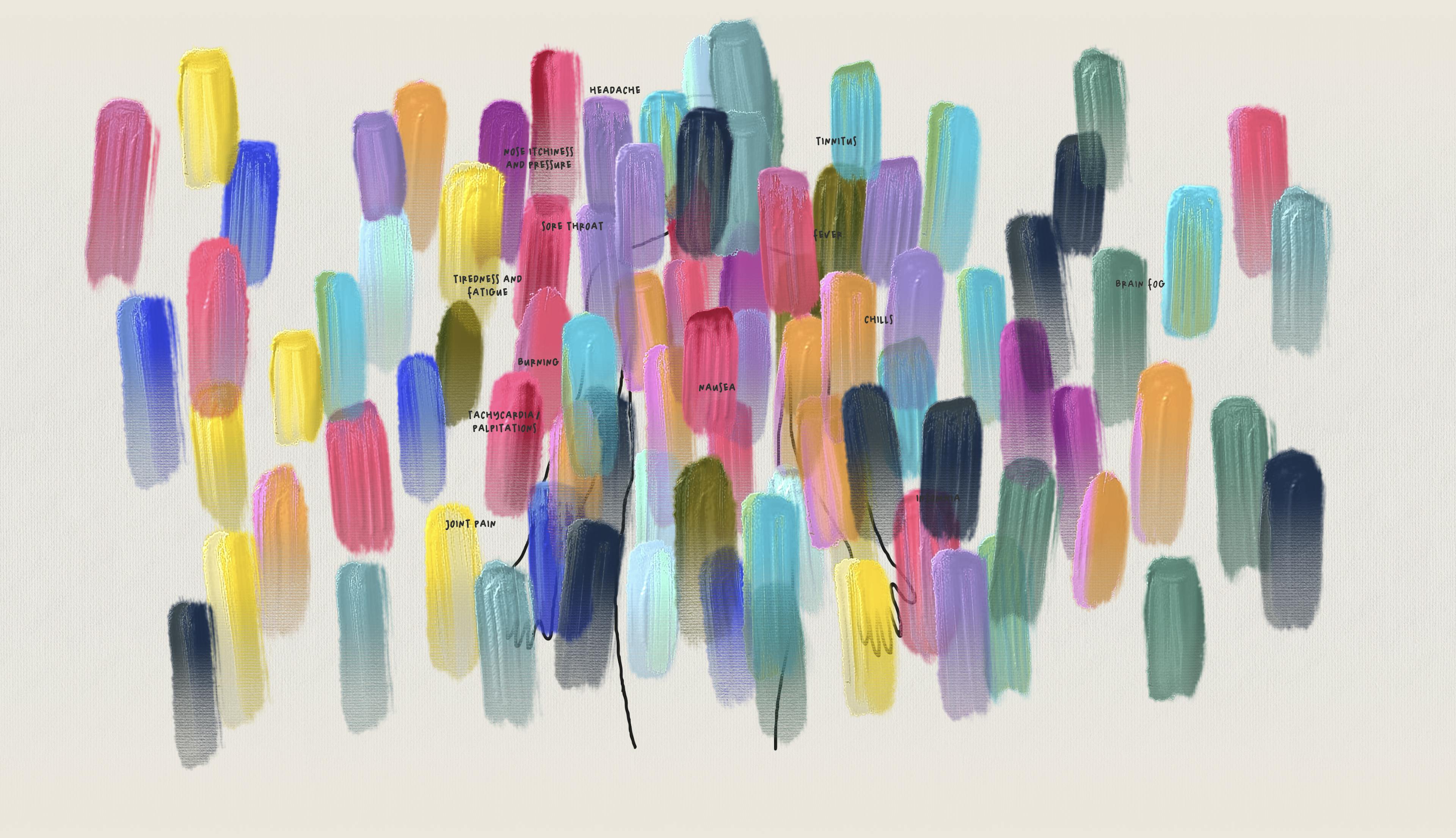
Four years into the Covid-19 pandemic many aspects of the disease remain a mystery. While most people recover from the illness as though it were a bad flu or cold, others develop debilitating symptoms and lingering infections that stretch for months and even years. Long Covid affects an estimated 65 million people around the world. Yet those who suffer from it still face widespread doubt and minimization.
Giorgia Lupi — a partner at the design firm Pentagram — experienced this firsthand. She first came down with Covid-19 in March 2020; three and a half years and two subsequent infections later, she is still dealing with daily symptoms that range from fatigue, nausea and dizziness to severe headaches and nerve pain that make it difficult to function.
We worked closely with Giorgia and her team at Pentagram on an essay for The New York Times that uses data visualization to convey the overwhelming experience of Long Covid.
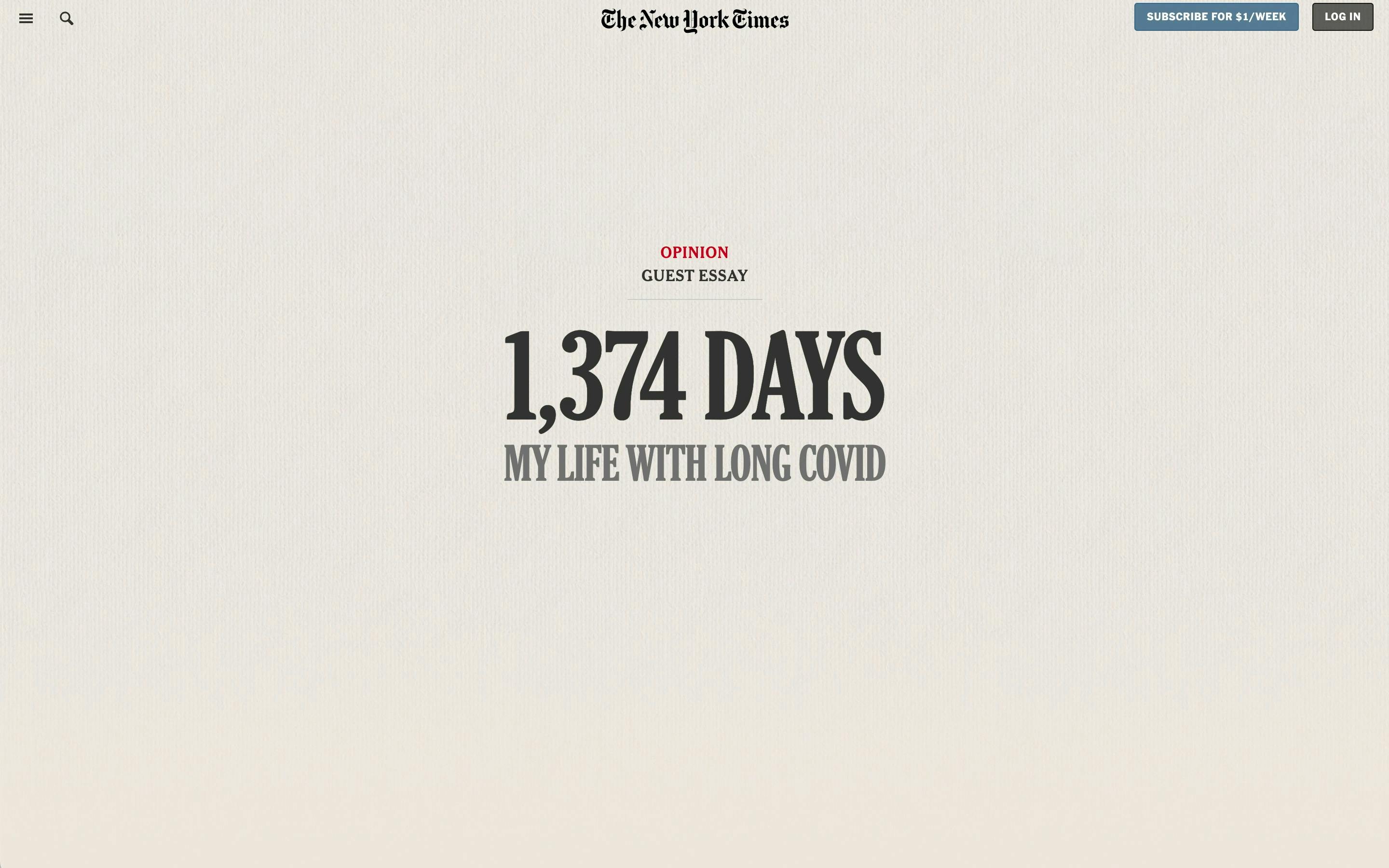
Communicating suffering through color
In the piece, Giorgia uses colorful brushstrokes of varying intensity to track her symptoms each day over the past few years. Seen all at once across the calendar, these dense layers of marks begin to convey the magnitude of pain and suffering inflicted by Long Covid. Accompanying the visualization, Giorgia contributed a guest essay that makes public many of the details of her journey for the first time.
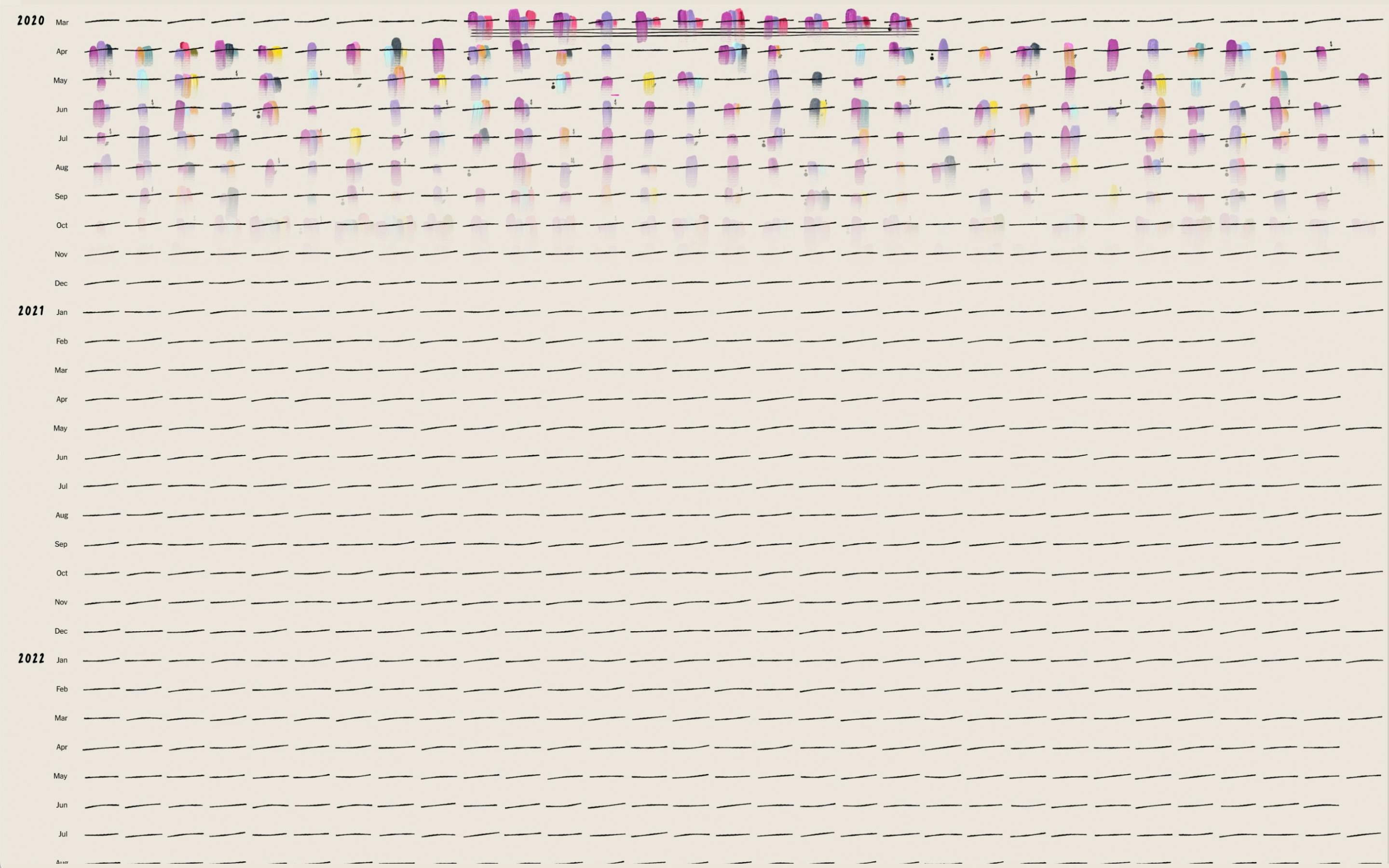
Capturing the personal and collective experience of illness
The project started with a spreadsheet in which Giorgia would make detailed daily notations, tracking her undiagnosed symptoms and their severity, the medications she took and the food she ate, as well as her triggers and tolerance for activity. She gave her medical providers access to the chart to help formulate treatment plans, and she began sharing the spreadsheet with her design team to signal how she was feeling before work each day. The practice of logging her data gave Giorgia a sense of agency and control over the chaos of the illness.
Over the course of our partnership, Giorgia’s initial, hand-painted sketches became a computer-generated data visualization. In doing so, we drew upon a data set of 21 different groups of symptoms from the over 200 documented Long Covid symptoms experienced by Giorgia and others. We represented each symptom with a different color and a description in the accompanying legend.

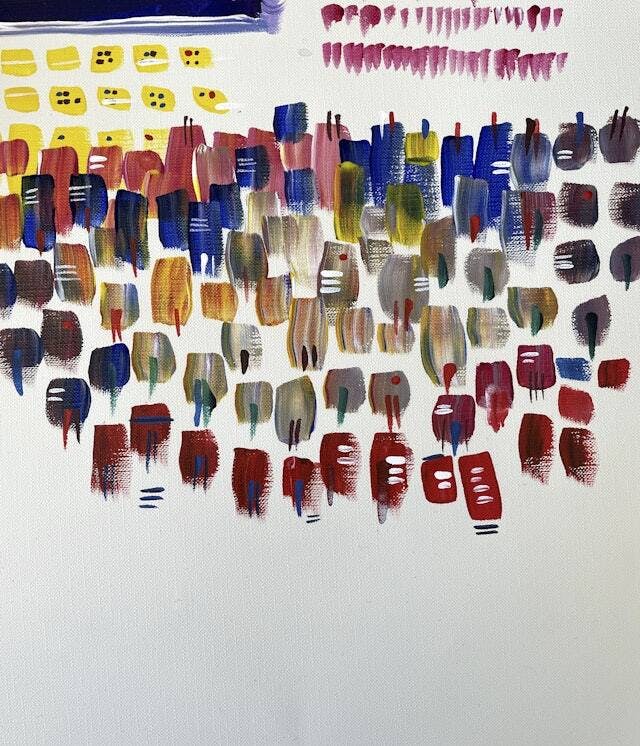
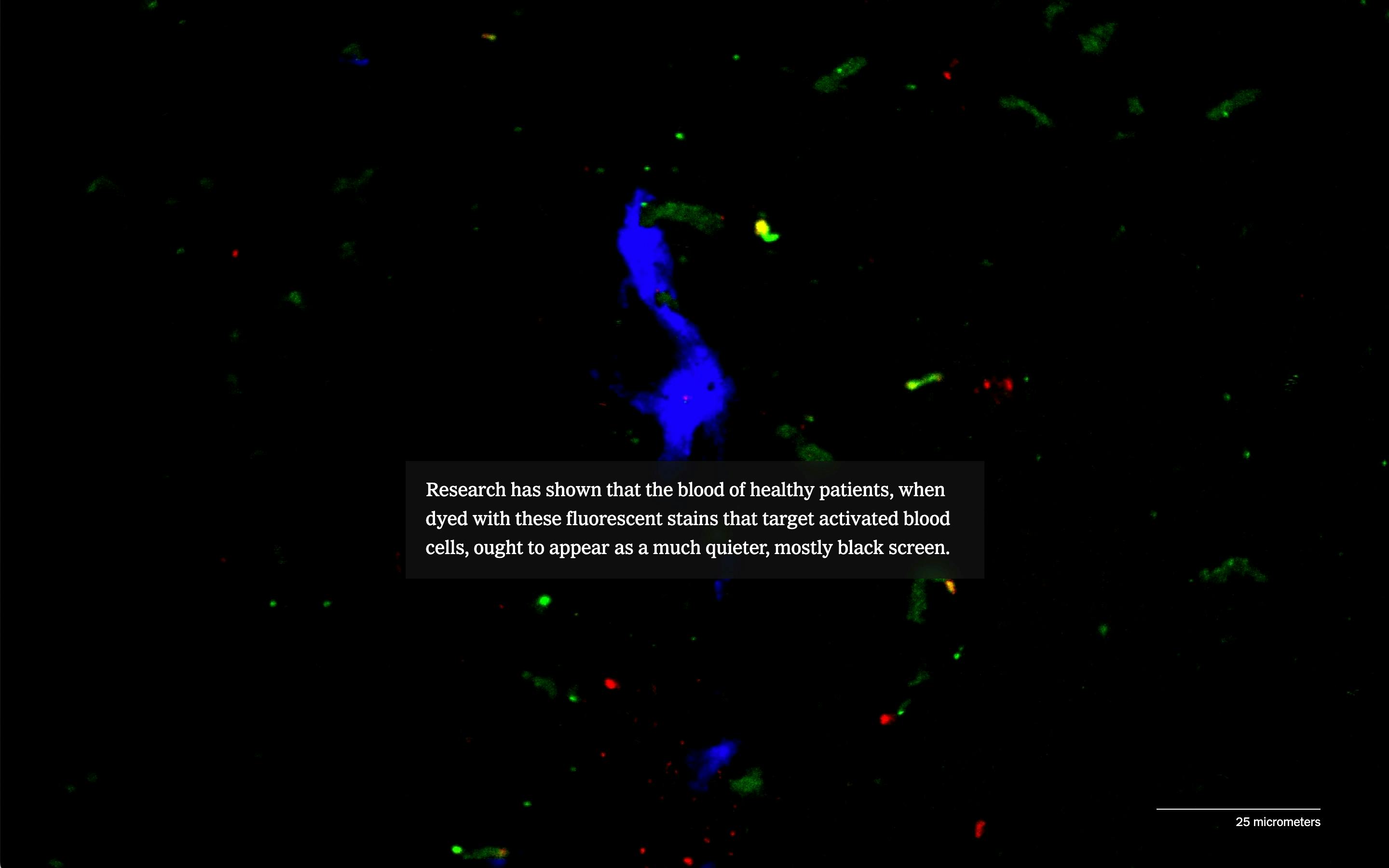
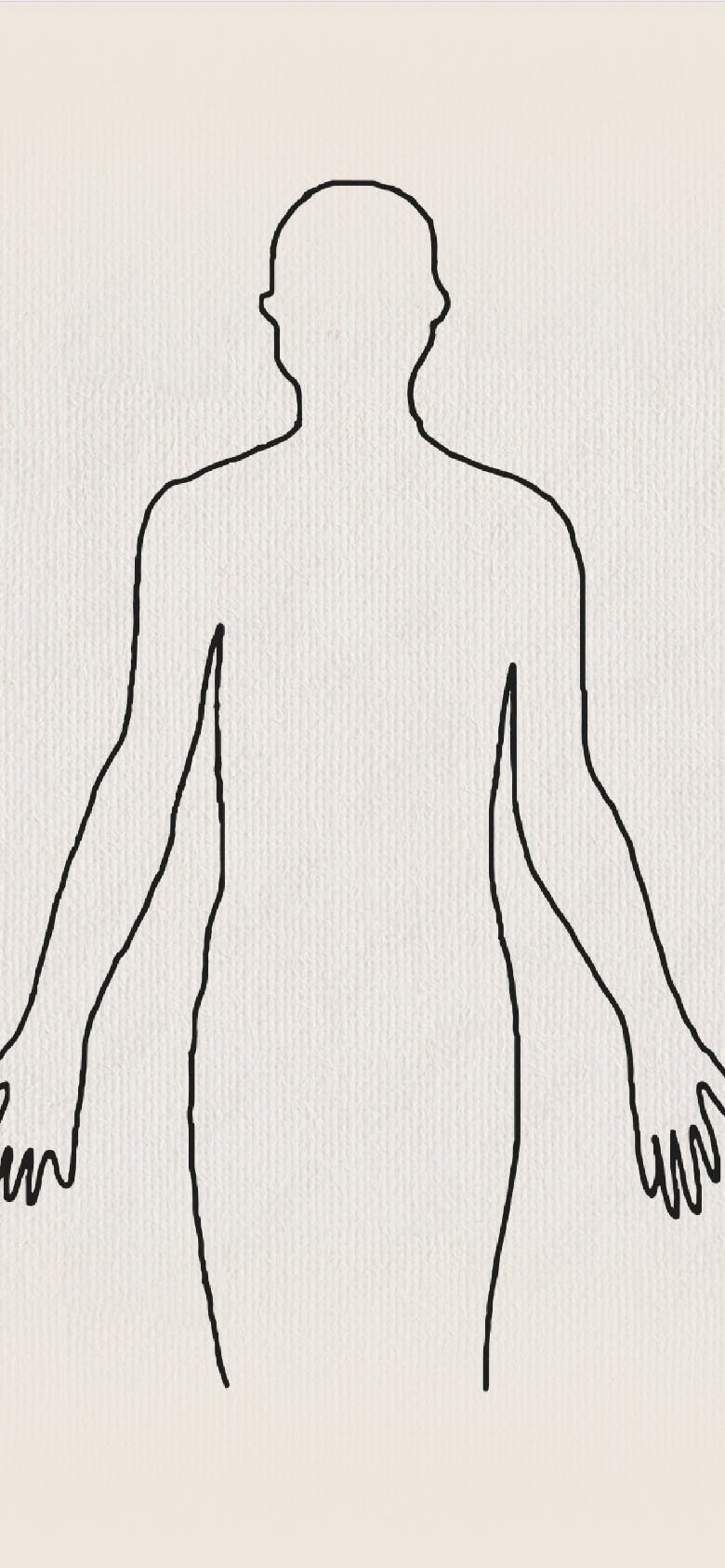
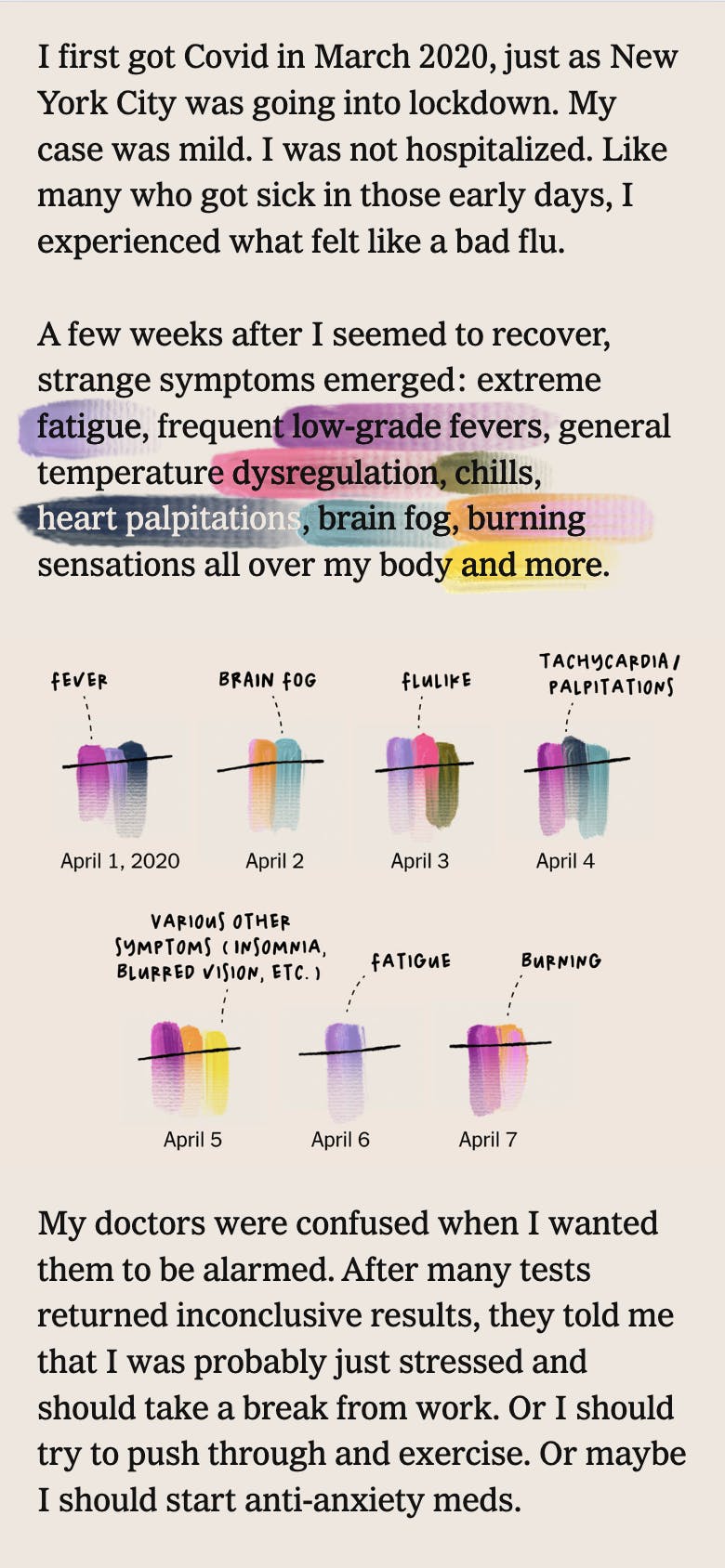
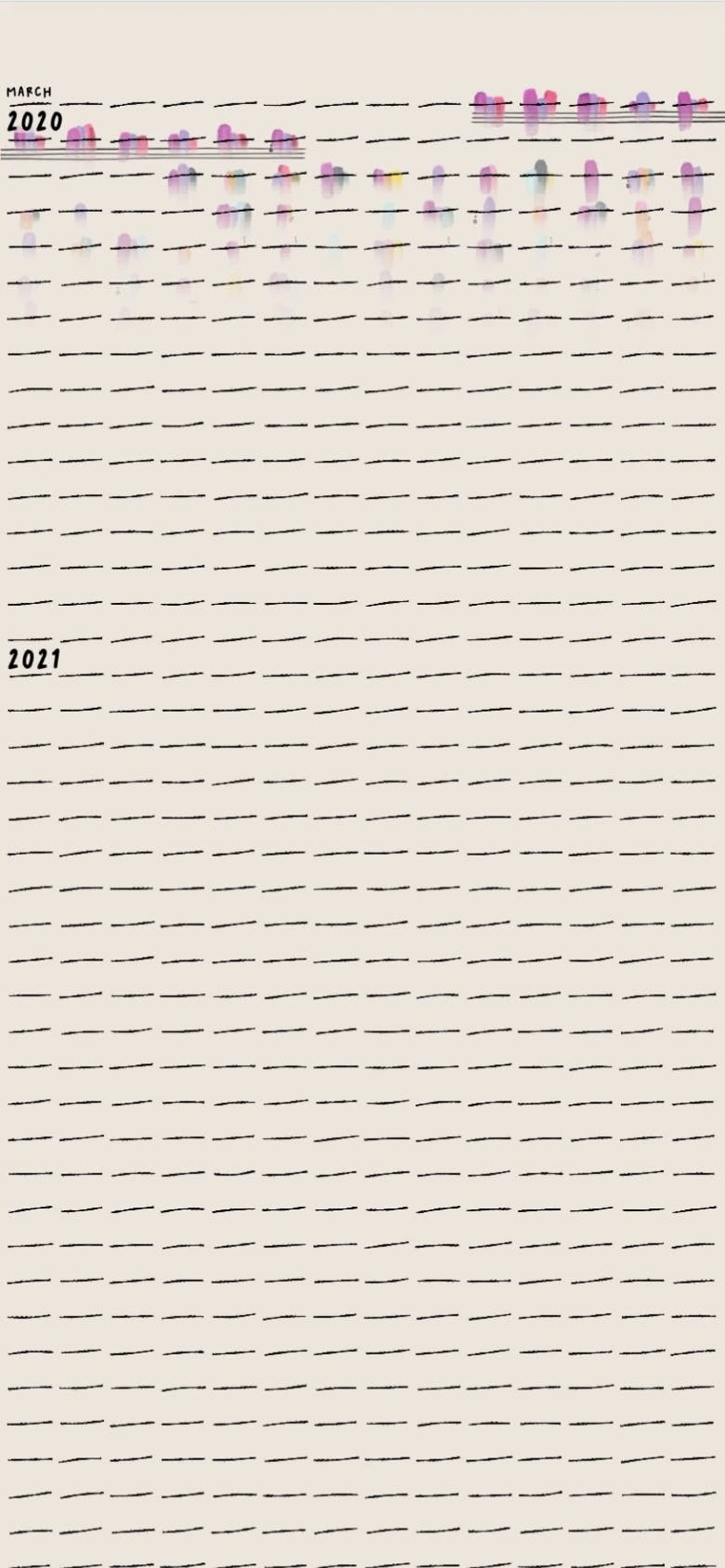
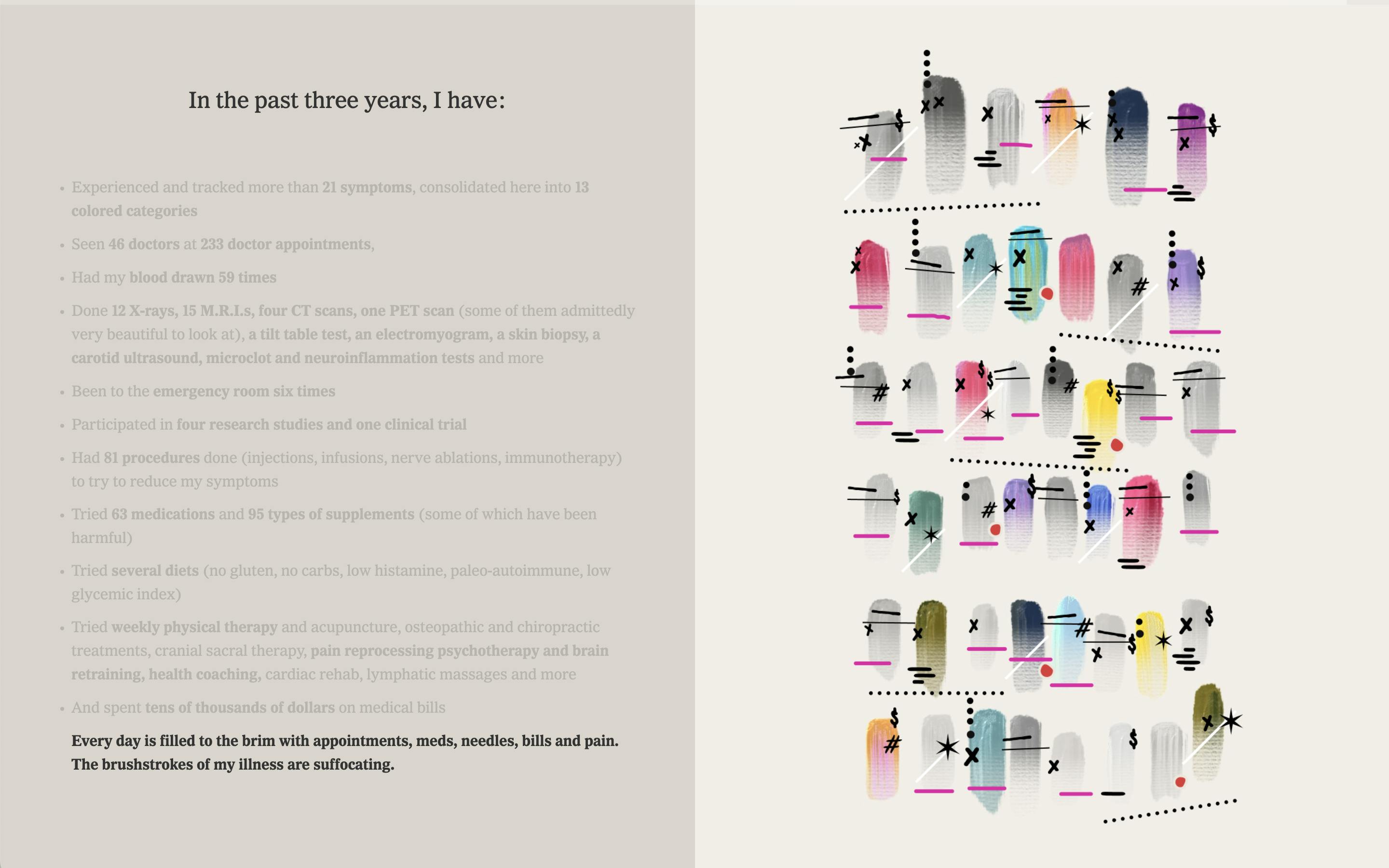
A movement built through shared knowledge
“Data is a tool that helps me cope with life when I am scared, confused, and looking for answers,” Giorgia writes. Throughout her ordeal, Giorgia has also drawn support from the grassroots Long Covid community. In writing the visual essay, she and her team reached out to community members to record their hopes for the future. The team also contacted scientists and researchers for their perspectives.
Many within the Long Covid community feel that they have finally reached a ground-shifting collective moment as their different voices have come together to make themselves heard. Clinical trials and research studies are beginning, and Giorgia herself has participated in several. But progress is slow.
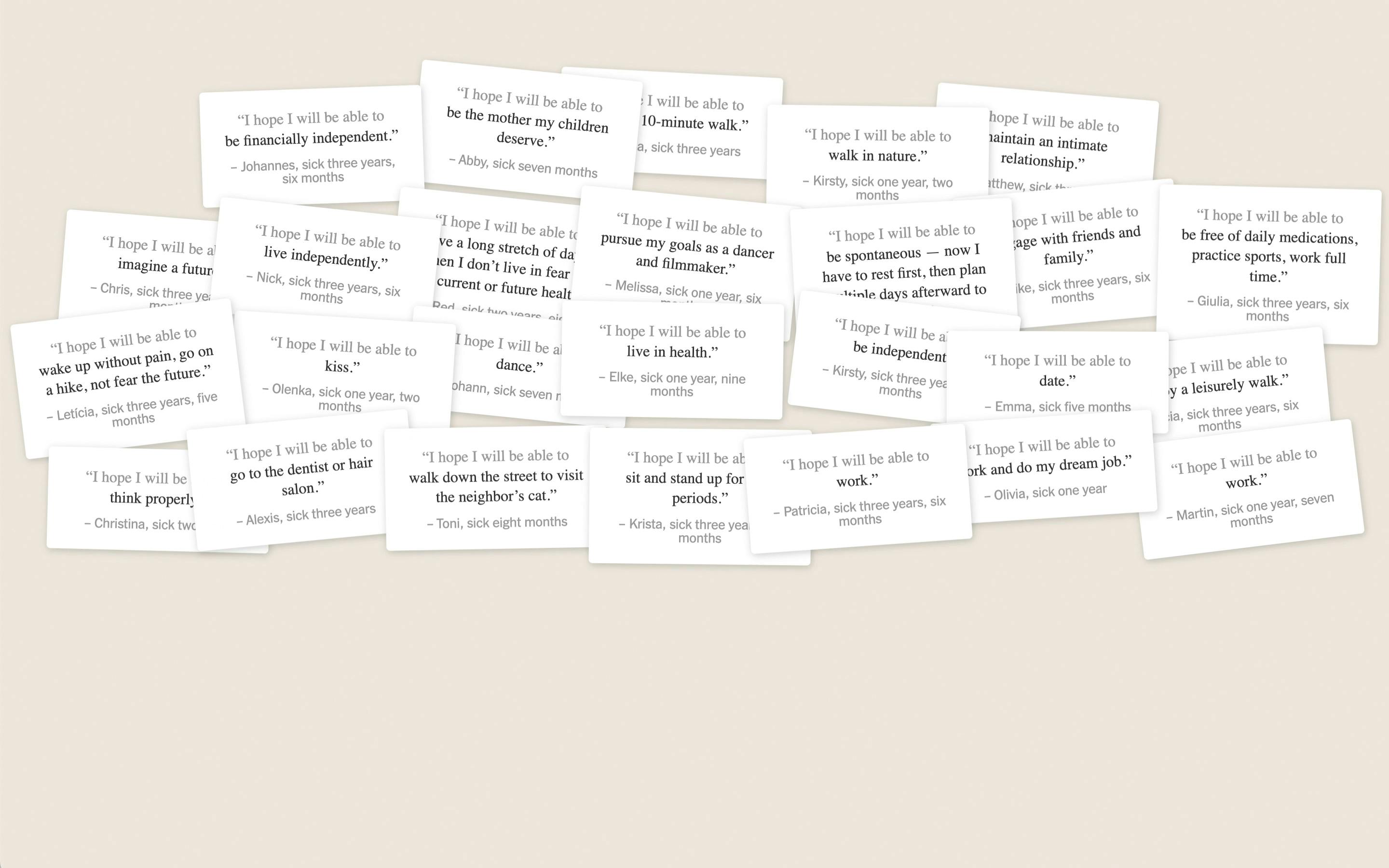
An urgent call for change
As Giorgia says in the piece, “We don’t have time. The longer a person’s body is in a state of chronic illness, the harder it is to fully recover.”
Giorgia continues to track her symptoms every day as she looks forward to a time when recording this data is no longer necessary. Until then, she hopes the Times essay reaches others who may be suffering from Long Covid and reminds them they are not alone.
Decimal
- Alex Muñoz
- Cherif Zouein
- Gabrielle Harlid
- Guillermo Brotons
- Kirsten Holland
- Nate Minnick
- Nathan Gordon
Pentagram
- Giorgia Lupi
- Phillip Cox
- Madeleine Garner
- Gabrielle Merite
- Jacopo Poletto
- Tommaso Renzini
- Julia Saimo
The New York Times
- Jeremy Ashkenas
